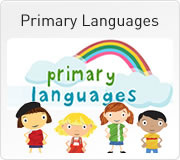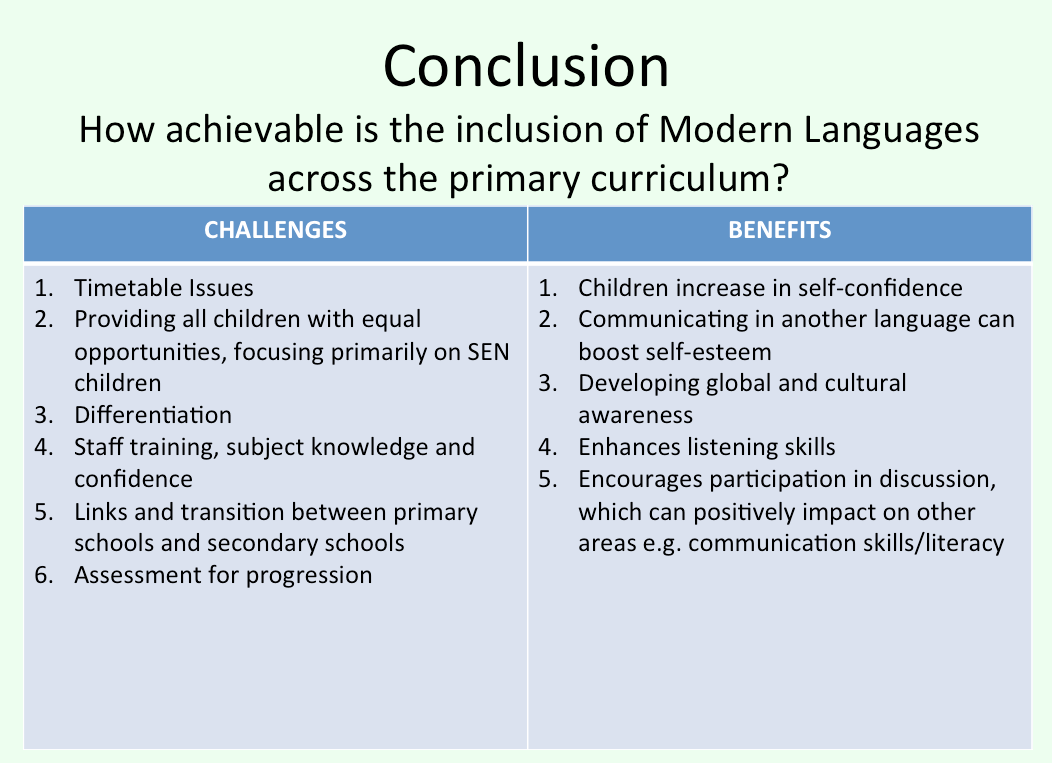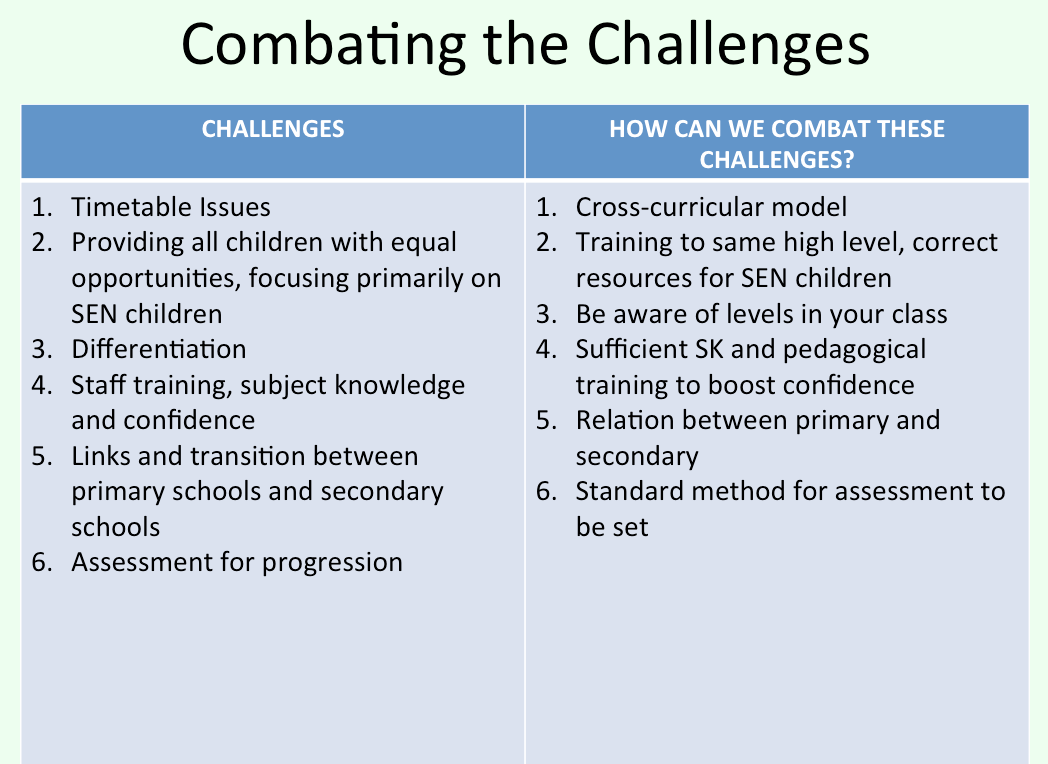¿Piensas que los niños deberían aprender un idioma extranjero en la escuela primaria?
Do you think that children should learn a foreign language at primary school?
¿Cómo te sentirás si tuvieras que enseñar el español a tu clase todos los días?
How would you feel if you had to teach Spanish everyday to your class?
‘A nation’s fate will depend, in the end, on the quality of the education its children get in language’ (Comenius 1630).

How achievable is the inclusion of ML across the primary curriculum?
On returning from my specialist languages placement I delivered a presentation on how achievable the inclusion of ML is across the primary curriculum.
After drawing on my own experience and a number of literary resources, the evidence presented a number of various outcomes.
The inclusion of ML is possible, however it requires strong support and backing from all staff members. This means that non-linguists will require strong support from team members to boost confidence and subject knowledge.
I addressed two main areas in my presentation:
•What impact will the inclusion of languages in the curriculum have on primary schools?
–What challenges will schools face as a result?
•Will the challenges be worth it?
–To what extent does the inclusion of languages in the primary curriculum enhance children's learning?
The main conclusions were as follows:
I also thought about how we could combat the challenges that teachers may face:
Let me know what you think...
The article below supports the integration of primary languages into the curriculum but what are the possible implications? - Please feel free to post your ideas and comments
Discussion of the benefits of MFL in the curriculum
http://ezinearticles.com/?Teaching-Modern-Foreign-Languages-To-Early-Learners---The-Benefits-(Part-1-of-2)&id=5502516
To what extent can MFL be implemented across the primary curriculum?
Over the next two weeks I will be on a specialist language placement in KS2.
I will be observing and teaching Spanish classes from year 3 up to year 6 and will also be observing and teaching core and foundation subjects. The aim of this is to identify opportunities where MFL could be integrated into the primary curriculum. This could simply be in the form of classroom commands and/or translating the actual content of a lesson into Spanish.
I will consider the implications that the integration of MFL may have in the classroom and will also consider the benefits over the following 2 weeks.
I will also be discussing with the children what their favourite parts of language learning are and why they think that they are useful. How would they feel if part of their maths lesson was done in Spanish?

The positives of educational blogging in the 21st century...
Blogging is something that isn't done by the majority, however those schools that do take part and engage with it fully say that it:
1. Is highly motivational for many children at key stage two.
2. Can transform children from being writers into publishers to a wider 'real' audience.
3. Promotes critical thinking 'about' writing e.g. children can learn about constructive peer assessment.
4. A real sense of an authentic audience and purpose for children's writing.
5. Can motivate children to improve, care and realise that their writing can affect a reader to comment.
6. Helps children to understand and comment on features of 'good' writing.





